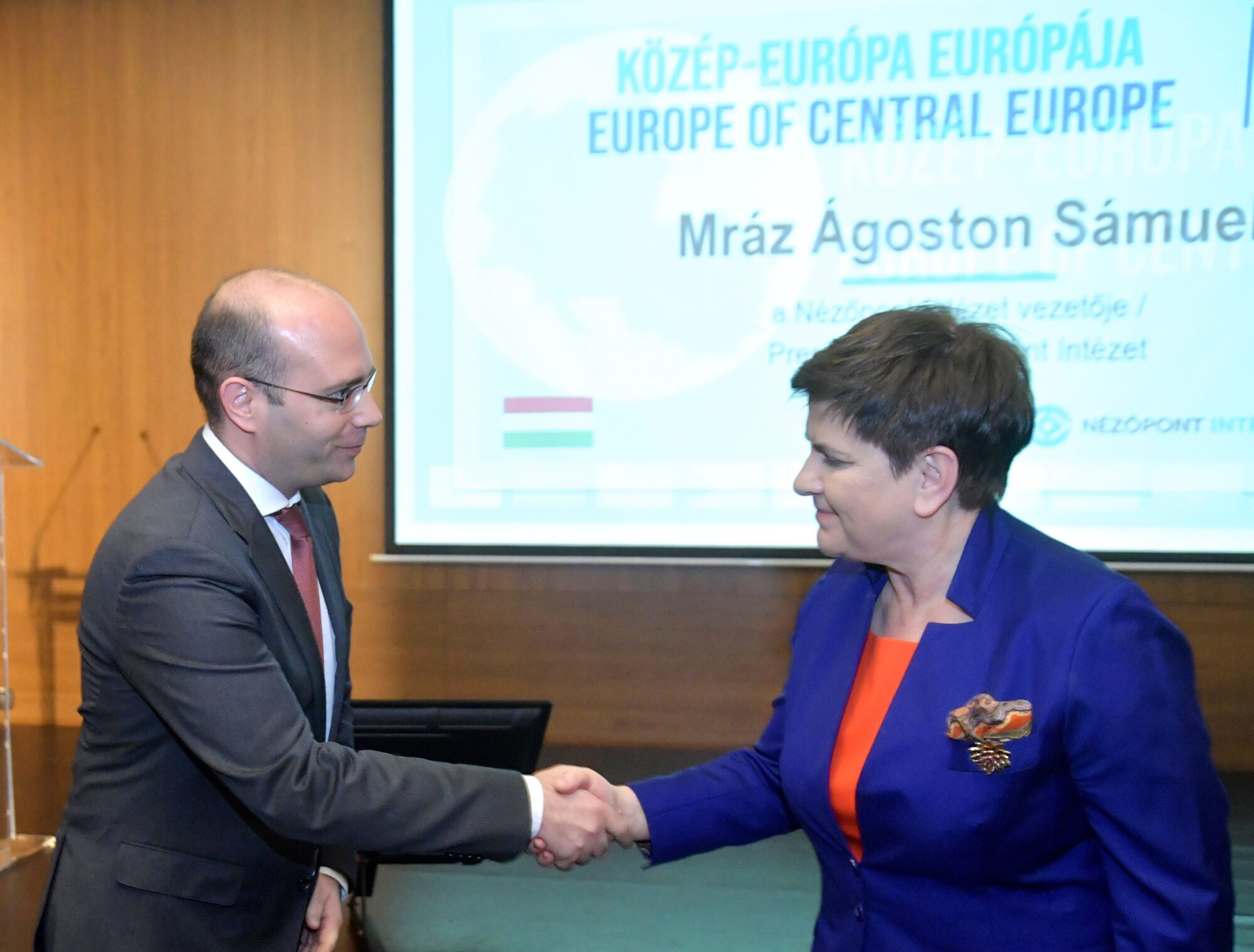„Central Europe has been put on the world map once again, and this is our achievement, Poles, Hungarians, Slovaks and Czechs together”, said Polish Deputy Prime Minister Beata Szydlo at the conference „Europe of Central Europe” organised by Nézőpont Intézet and the Felczak Foundation.
The Polish Deputy Prime Minister drew attention to the deepening relations and joint opportunities of Central European countries. As she said, “We have gained our independence together, we have built our economies together. We’ll either stick together or fall into pieces in the EU puzzle. ” At Nézőpont Intézet’s Budapest event she said that Central European countries needed to stand together for their values on international forums, which requires a constant struggle. Beata Szydlo also talked about the significance of the upcoming European Parliamentary elections. According to Szydlo, trust in the European Union was decreasing, EU citizens felt alienated from EU institutions, while the alliance was splitting due the a two-speed European mechanism. Central Europe has an obligation to reverse this process. „Let’s give people hope that the community we have created will connect and not separate us”, said the Polish Deputy Prime Minister.
Thirteen Hungarian and Polish politicians and experts took part in the international conference. Hungarian Minister of Justice László Trócsányi said it was important for Hungary and Poland to think together about the future of Europe and share their visions. „Central European states are weak by themselves but invincible together”, he said quoting from a recently published German newspaper article on the Visegrad Cooperation. According to László Trócsányi, Central European cooperation was successful, and V4 voices were reaching further today than ever before.
The event was opened by Nézőpont Intézet CEO Ágoston Sámuel Mráz and co-organiser Karol Biernacki, President of the Felczak Foundation. Ágoston Sámuel Mráz said in his speech that according to Nézőpont Intézet’s surveys 70 percent of Central Europeans considered themselves Christian, and yet again 70 percent said they did not want anything to do with immigration. With this Central European nations have found upon a common theme that also serves as a message for the European Parliamentary election campaign, he added. Karol Biernacki called attention to the fact that European founding principles had hollowed out, and it was vital that Christianity remained a central theme in Polish-Hungarian cultural discussions.
Several roundtables were also held at the event. In a debate over the identity of the European Union, Bishop of the Szeged-Csanad Diocese László Kiss-Rigó said the concepts „materialistic Christian” and „atheistic Christian” were becoming popular in Europe creating a dangerous phenomenon. „Europe either remains Christian or there is no Europe”, he said. He wasn’t referring to packed churches but rather to the fact that Europe would have to confess its identity, or if it refused to do so, it would turn into a homogeneous, non-descript mass and disappear from history, László Kiss-Rigó said.
The discussion was also attended by Igor Janke, the Polish journalist who wrote a book about Hungarian Prime Minister Viktor Orban. The Polish journalist drew attention to the fact that Europe had fallen behind in the global economic competition, and said that in his opinion Europe was the least innovative continent.
